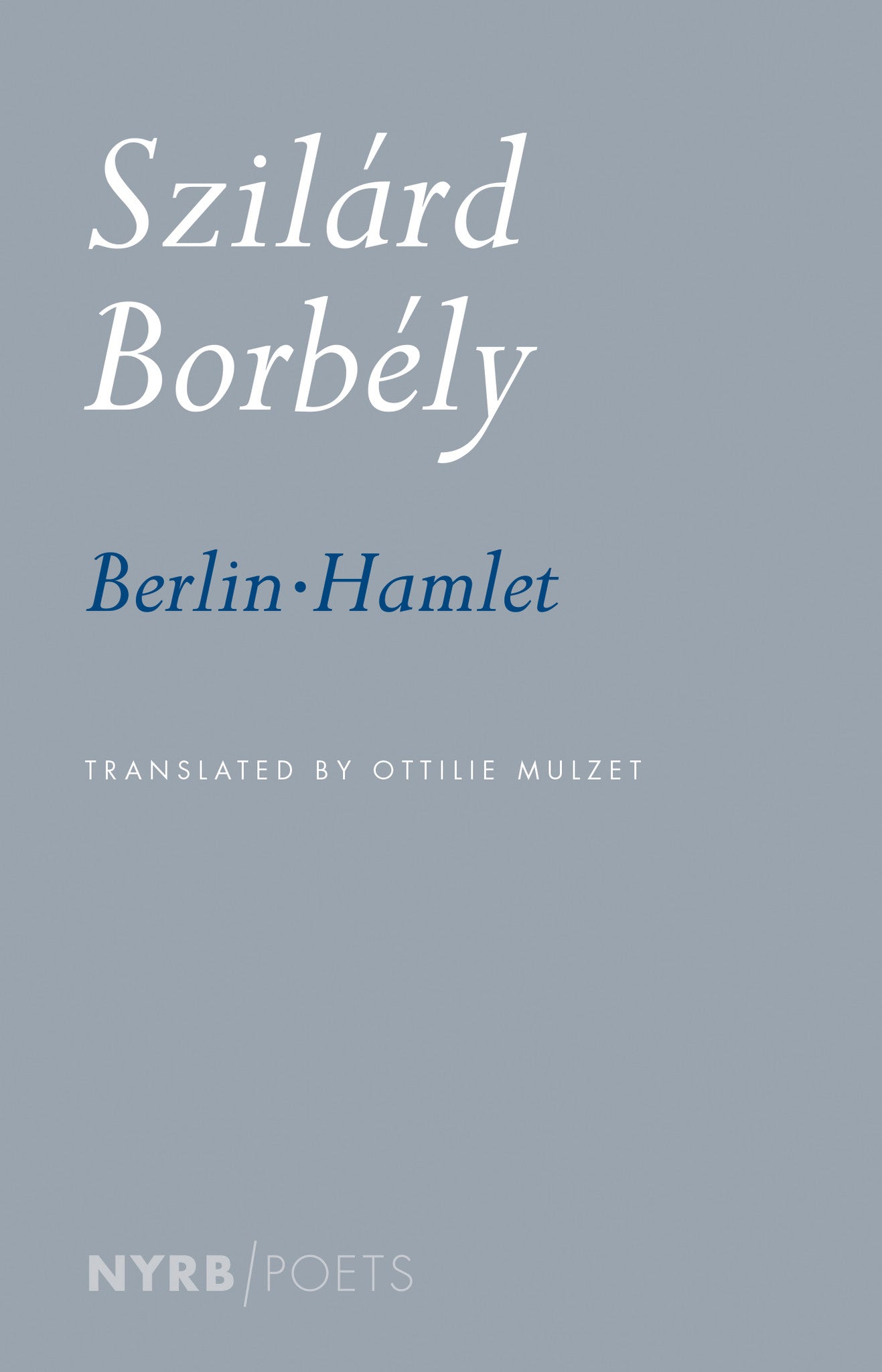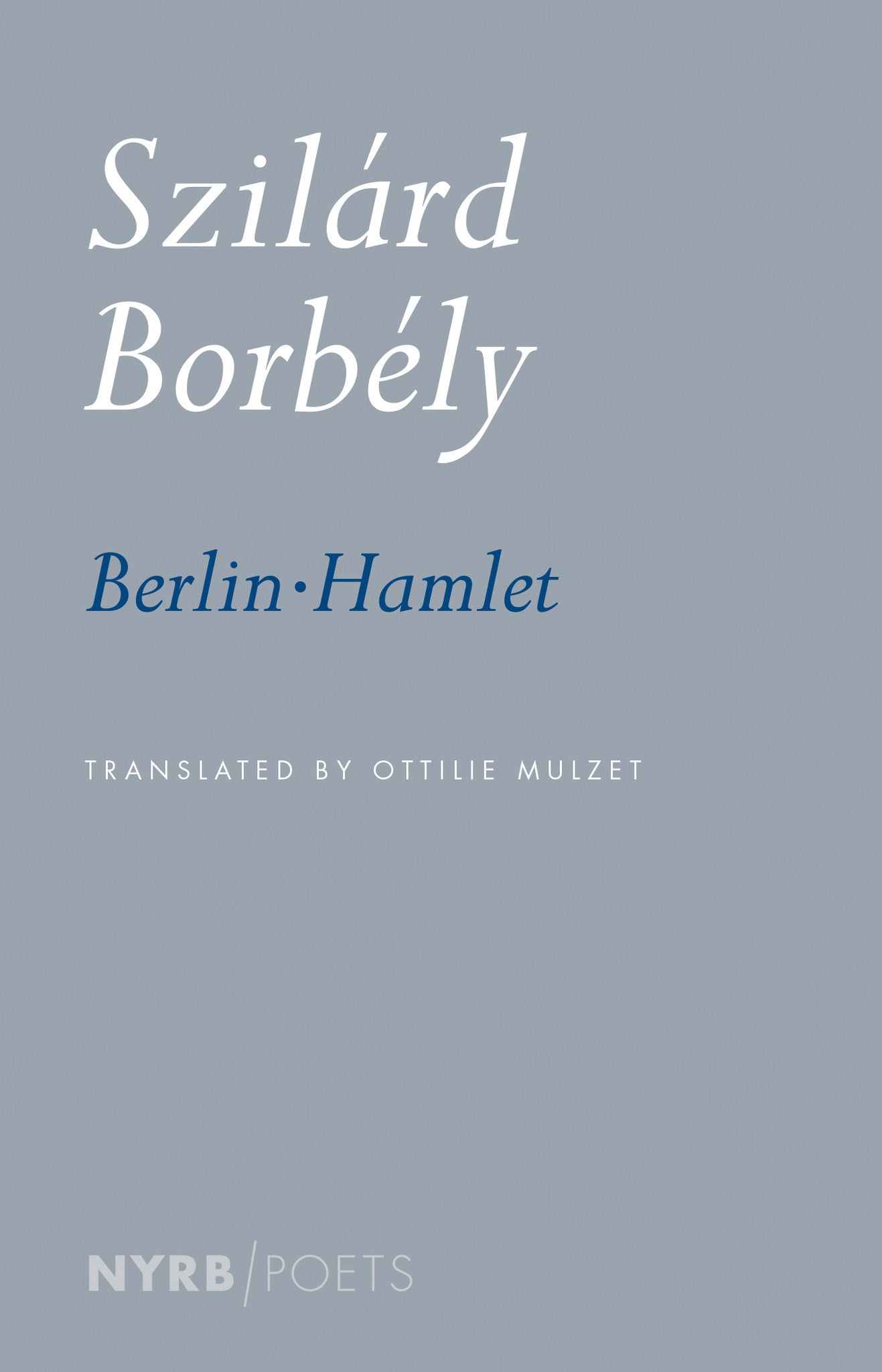Berlin-Hamlet
Berlin-Hamlet
by Szilárd Borbély, translated from the Hungarian by Ottilie Mulzet
Regular price
$14.00
Regular price
$0.00
Sale price
$14.00
Unit price
per
Couldn't load pickup availability
Additional Book Information
Additional Book Information
Praise
Praise

-
Shopping for someone else but not sure what to give them? Give them the gift of choice with a New York Review Books Gift Card.
Gift Cards -
A membership for yourself or as a gift for a special reader will promise a year of good reading.
Join NYRB Classics Book Club -
Is there a book that you’d like to see back in print, or that you think we should consider for one of our series? Let us know!
Tell us about it





